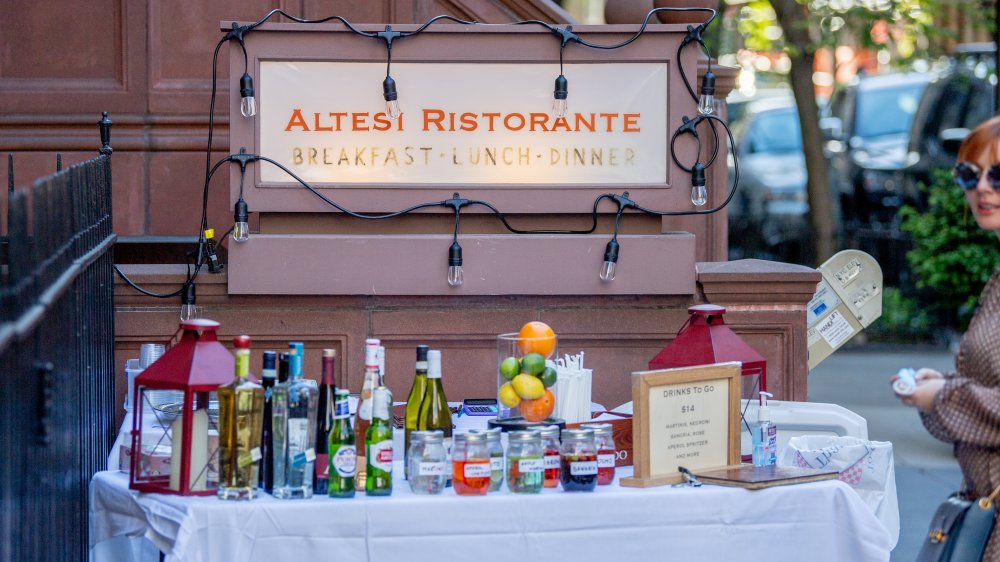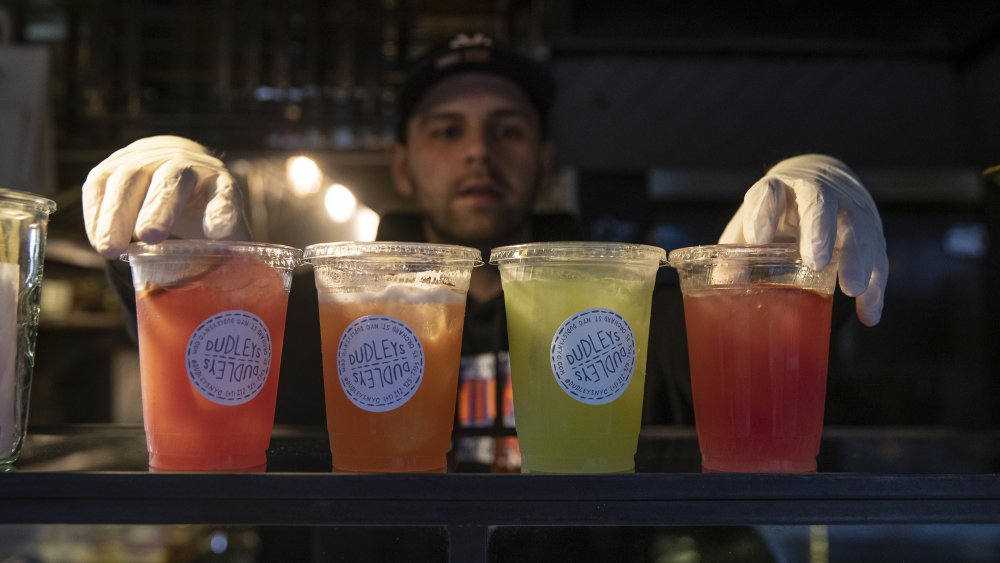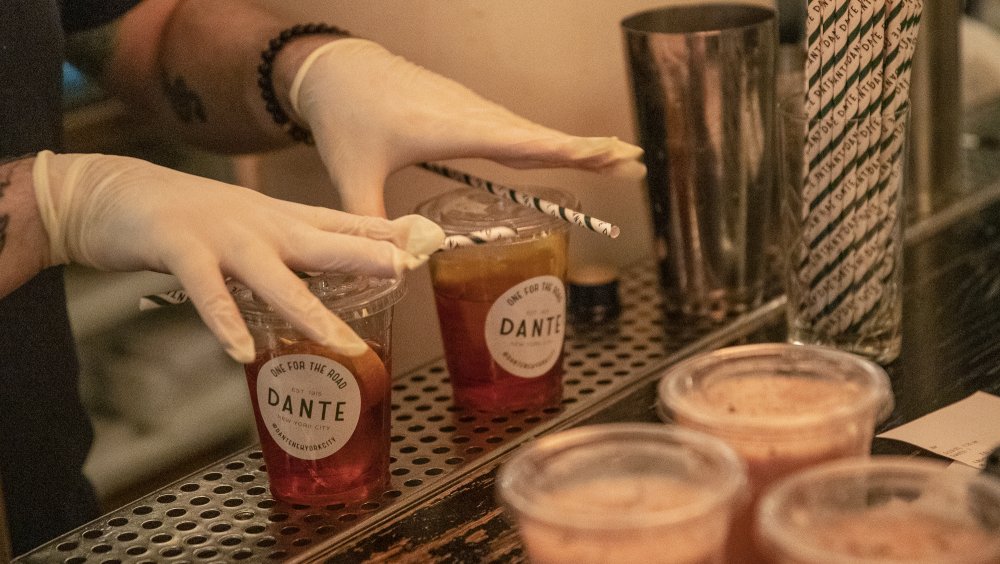The Real Reason To-Go Alcohol Sales May Become Permanent
When the pandemic forced many restaurants and bars to close down their dining rooms and focus on delivery and takeout instead, selling alcohol for delivery and to-go cocktails became a lifeline for these businesses amid all the disruption to their daily sales. Even as things reopen and restaurants can slowly return to normal operations, state officials are considering making these temporary measures permanent — and those in the hospitality industry are in support.
Allowing restaurants and bars to continue serving alcohol for takeout and delivery would be a welcome channel of revenue. In the U.S., alcohol sales bring in about $90 billion each year and tend to stay strong no matter what. According to an alcohol industry analyst, people generally continue to drink through a recession, so alcohol sales usually thrive during times of economic hardship. This is unlike many other entertainment expenses, which tend to suffer during recessions. And even prior to the pandemic, alcohol sales accounted for around 30 percent of revenue for restaurants (via The Houston Chronicle).
More than 30 states, the District of Columbia, and Puerto Rico have passed emergency measures that allow restaurants and bars to sell cocktails to go and for delivery. Many owners like Calvin Vick and Kinley Strickland of KC Daiquiri Shop in Kansas City, Missouri, credit these measures for saving their businesses during the pandemic (via Fox News).
Why restaurants need to-go alcohol sales to become permanent
Restaurants will need off-premise alcohol sales as a source of revenue, even after the pandemic is over. Niki Ganong, author of The Field Guide to Drinking in America, told Eater that these measures allowing restaurants to serve alcohol for takeout and delivery were put into place to help these struggling businesses earn money in any way possible. In her opinion, the financial need for these sales is not going to go away, even after things reopen. Plus, the option to add on a cocktail to a meal ordered to go or for delivery is something that customers have become accustomed to.
These sales could help an important industry that is struggling and will continue to experience obstacles. The restaurant industry has lost over 8 million jobs and roughly $120 billion in revenue so far, according to Sean Kennedy, executive vice president of public affairs for the National Restaurant Association. Off-premise alcohol sales currently represent up to 10 percent of revenue for these businesses — a much-needed source of earnings for an industry that's already dealing with restrictions on guest capacity.
States might make to-go alcohol sales permanent
State officials are making moves to extend existing orders or make them permanent. Some state leaders in Missouri want Governor Mike Parson's temporary order, which has allowed off-premise alcohol sales until the end of the year, to become permanent legislation. "This will be a great way for them to continue to get revenue while we all have to distance ourselves," Ashley Bland Manlove, a Democrat in the Missouri House of Representatives, said to Fox News.
In Colorado, a bill that would allow restaurants to continue offering alcohol for takeout and delivery is making its way to Governor Jared Polis. If enacted, this legislation would allow businesses with on-premise liquor licenses to keep these particular sales going through July 1, 2021. One in five restaurants in the state are making "significant revenue from the to-go liquor sales," says the Colorado Restaurant Association (via CBS Denver).
New York State Senator Brad Hoylman has introduced legislation that would allow restaurants and bars to continue selling wine, beer, and cocktails for takeout and delivery — for two years following the end of the pandemic. Camila Marcus, one of the founding members for Relief Opportunities for All Restaurants, a restaurant coalition of more than 75 businesses in New York City, told Eater New York that this bill is essential for restaurants as they struggle to "determine if they can even consider reopening and bringing back the hundreds of thousands of workers employed by the industry."


